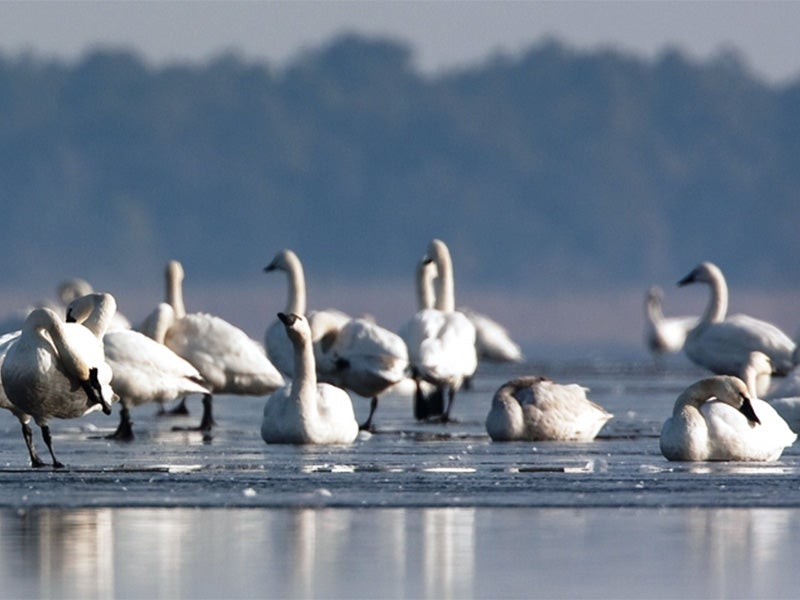Challenging Ammonia Emissions from an Industrial Egg Farm
Hanging in the balance in Rose Acre Farm’s legal wrangling is the adjacent wildlife refuge and the entire Tar-Pamlico River system, which is the lifeblood of the people and communities who live within its watershed and the base for the economic health of the region.
Clients
Regional Office / Program
Case Overview
Rose Acre’s Hyde County facility, the largest industrial egg farm in North Carolina, includes twelve high-rise henhouses equipped with giant ventilation fans. The henhouses currently hold nearly 4 million egg-laying hens. These millions of hens generate an enormous amount of urine and fecal matter. Bedding material soiled by the dropped excrement, and excrement-associated pollutants, including fecal bacteria, ammonia, nitrogen and phosphorous, are then released through the ventilation fans.
The fecal matter, feathers, dust, ammonia and other pollutants blown out of the chicken houses enter the surrounding areas and the Pocosin Lakes National Wildlife Refuge, which is less than one and a quarter miles from the facility. The pollution from the facility degrades the water quality for the 300 wildlife species living in the wildlife refuge, diminishing this very special habitat that is enjoyed by local residents and thousands of visitors each year.
Hanging in the balance in Rose Acre Farm’s legal wrangling is the adjacent wildlife refuge and the entire Tar-Pamlico River system, which is the lifeblood of the people and communities who live within its watershed and the base for the economic health of the region.
The issuance of a Clean Water Act permit for Rose Acre would allow the factory farm to continue its business, and would help protect the surrounding waterways and nearby Pocosin Lakes National Wildlife Refuge from the harmful ammonia emissions.
Earthjustice and Lynch & Eatman, LLP represent Pamlico-Tar River Foundation, Waterkeeper Alliance, Inc. and Friends of Pocosin Lakes National Wildlife Refuge.

Case Updates
Case page created on January 9, 2013.